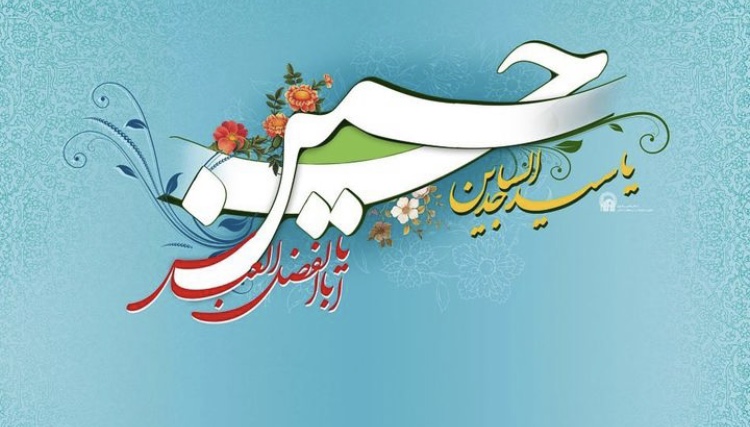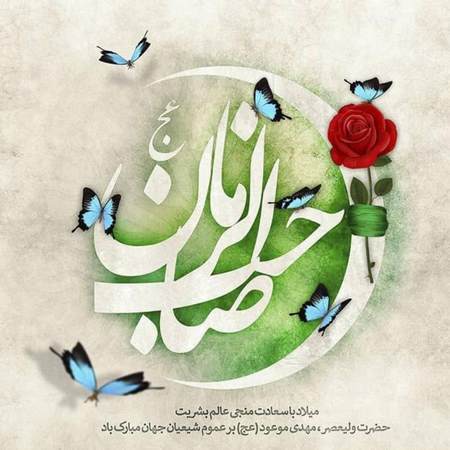
Wednesday March 4, 2026 is 15th of Sha’ban
Coming Soon
First day of Ramadhan maybe Thursday 19 February 2026
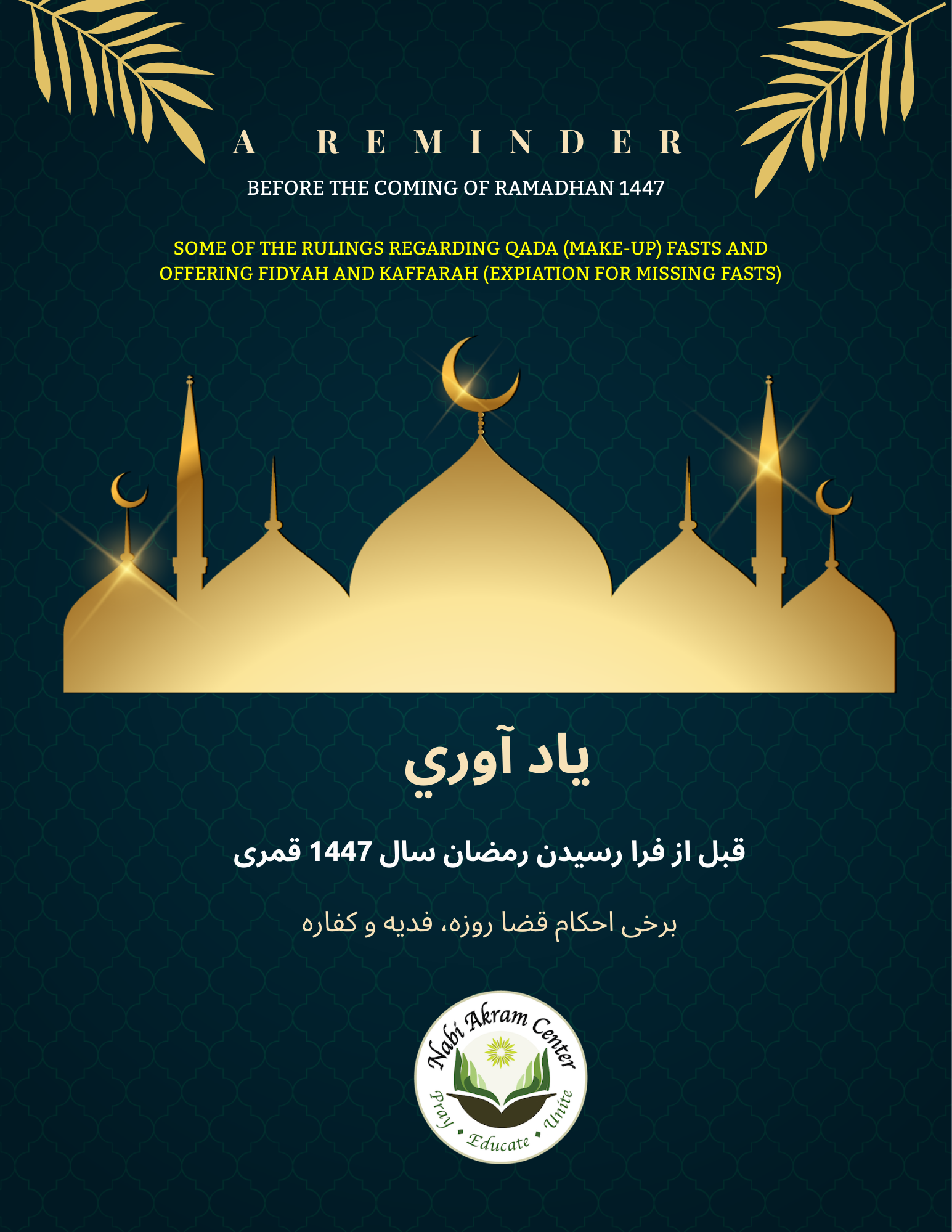
In the Name of God, the Beneficent, the Merciful
A reminder on some of the rulings regarding Qada (make-up) fasts and offering Fidyah and Kaffarah (expiation for missing fasts)
It is well known that a person who misses a fast from the month of Ramadan is required to make it up. In addition, sometimes such cases require offering a fidyah and/or a kaffarah as well. Therefore, we draw the attention of the believers to some of the most important rules regarding qada, fidyah, and kaffarah as we approach the holy month of Ramadan. We ask Almighty God to grant us success in our obedience and sincere worship to Him.
- It is obligatory to make up fasts of the month of Ramadan that were missed due to an illness, travel, or similar circumstances (with certain exceptions), or intentionally.
- Based on recommended precaution, one should make up their missed fast before the next month of Ramadan.
- If one has missed fasting the entire or part of the month of Ramadan due to a legitimate excuse/reason but does not make up the missed fast(s) before the next month of Ramadan (i.e. over the course of the following year) due to negligence, or had the intention to make it up but due to unexpected excuse (e.g., illness) couldn’t make it, they must make up the fast and offer kaffarah for delaying the qada fast, and it is in the same amount as fidyah.
- If one has missed fasting the entire or part of the month of Ramadan without a legitimate excuse/reason, and does not make up the missed fast(s) before the next month of Ramadan, he/she must make up the missed fast, and based on obligatory precaution offer kaffarah for delaying the qada fast. In addition, the kaffarah for intentionally breaking the fast without a legitimate excuse/reason must be offered (see below).
- A person who is unable to fast due to chronic disease is not required to perform qada but must offer fidyah.
- A person who finds it excessively difficult to fast on account of old age must offer fidyah and is not required to perform qada, however, if they [absolutely] cannot fast, no fidyah or qada are required.
- A pregnant woman in her last two months [of pregnancy] who is unable to fast due to [resulting] harm on her or the fetus must offer fidyah and make up the fast(s). The same rule applies to a nursing mother if there is fear of the breast milk stopping [as a result of fasting] and this breastfeeding is the only way to feed the newborn. However, in the case of a nursing mother who is capable of feeding her child by other means, such as using baby formula, she may not break her fast based on obligatory precaution.
- Fidyah is compensation offered for not being able to fast. It is to feed one poor person for each day [missed]. For example, one who is not able to fast the entire month must offer thirty (or twenty-nine depending on how many days were in the month in that year) meals to the poor.
- Kaffarah is an expiation for deliberately breaking one’s fast without a valid excuse/reason during the month of Ramadan. In addition, a kaffarah must also be offered for delaying a qada fast until the next month of Ramadan, as mentioned previously.
- The kaffarah for intentionally breaking one’s fast during the month of Ramadan is either to fast for sixty days or feed sixty poor persons for each day missed. This is in addition to being obligated to perform the qada fast(s).
- It is permissible to offer the entire fidyah to a single poor person, but the kaffarah for deliberately breaking one’s fast without a valid excuse/reason during the month of Ramadan must be to feed sixty distinct [poor] persons.
- When it comes to the fidyah and the kaffarah, nothing but “feeding” suffices. The amount of food “fed” must be the average of what we usually feed ourselves and our families. According to Islamic law, a single “feeding” must be the equivalent of at least 1.65 lbs. (750 grams) of wheat, rice, or dates.
- It is permissible to pay money with the condition of delegating to the appropriate entity, trustworthy person, or the poor person themselves, as long as one feels assured that the food will be bought and offered. It is not permissible to purchase anything other than food with the money.
Previous Occasions
Thursday-Saturday, January 22-24, 2026, is the 3rd, 4th and 5th of Sha’ban 1447 A.H. which marks the birth anniversaries of Imam Hossein (a), Abul Fadhal al-Abbas and Imam Zainul Abideen (a).
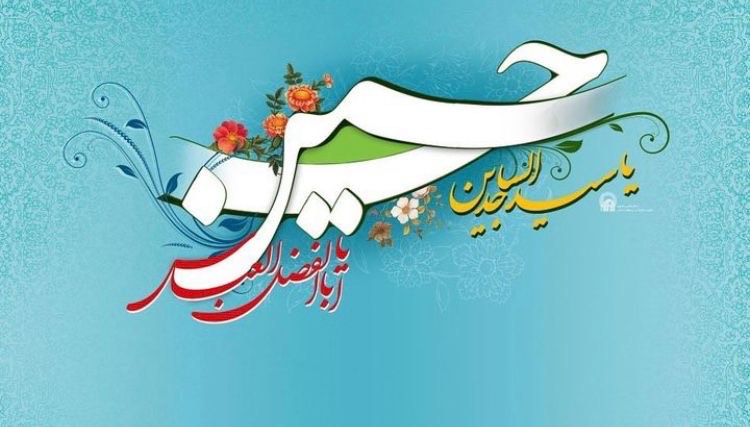
Thursday, January 15th, 2026, is the 25th of Rajab 1447 A.H. which marks the martyrdom anniversary of Imam Musa al-Kadhim (p).

Saturday January 3, 2026
Birth Anniversary of Ali Ibn Abi Talib (S) and Father’s Day in Islam
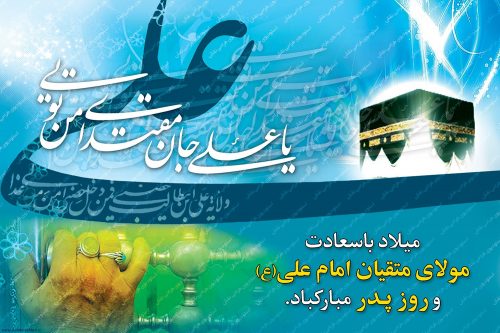
Birth Anniversary of Lady Fatima Al-Zahra (S)
Mother’s Day & Women’s Day in Islam
Saturday December 13, 2025

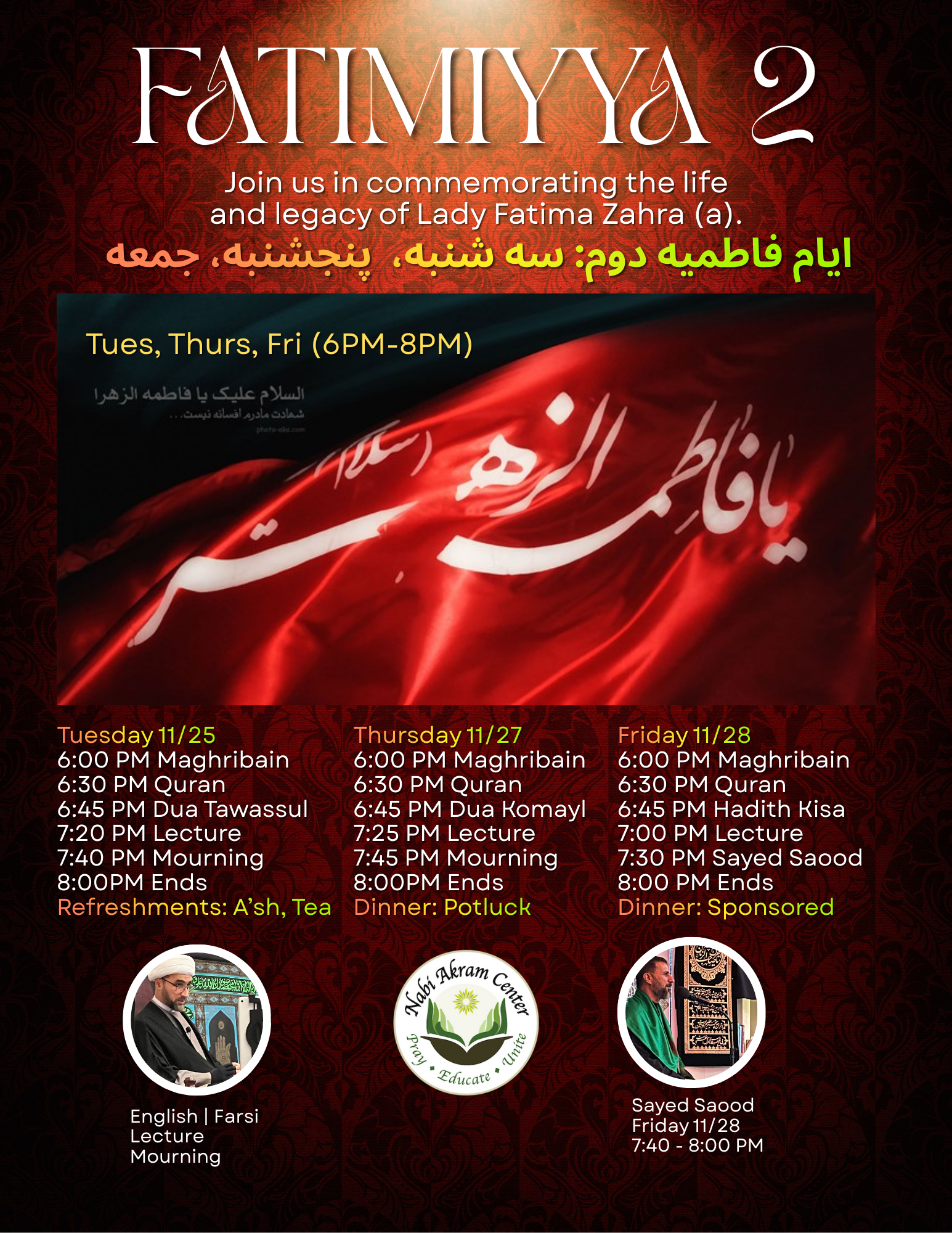
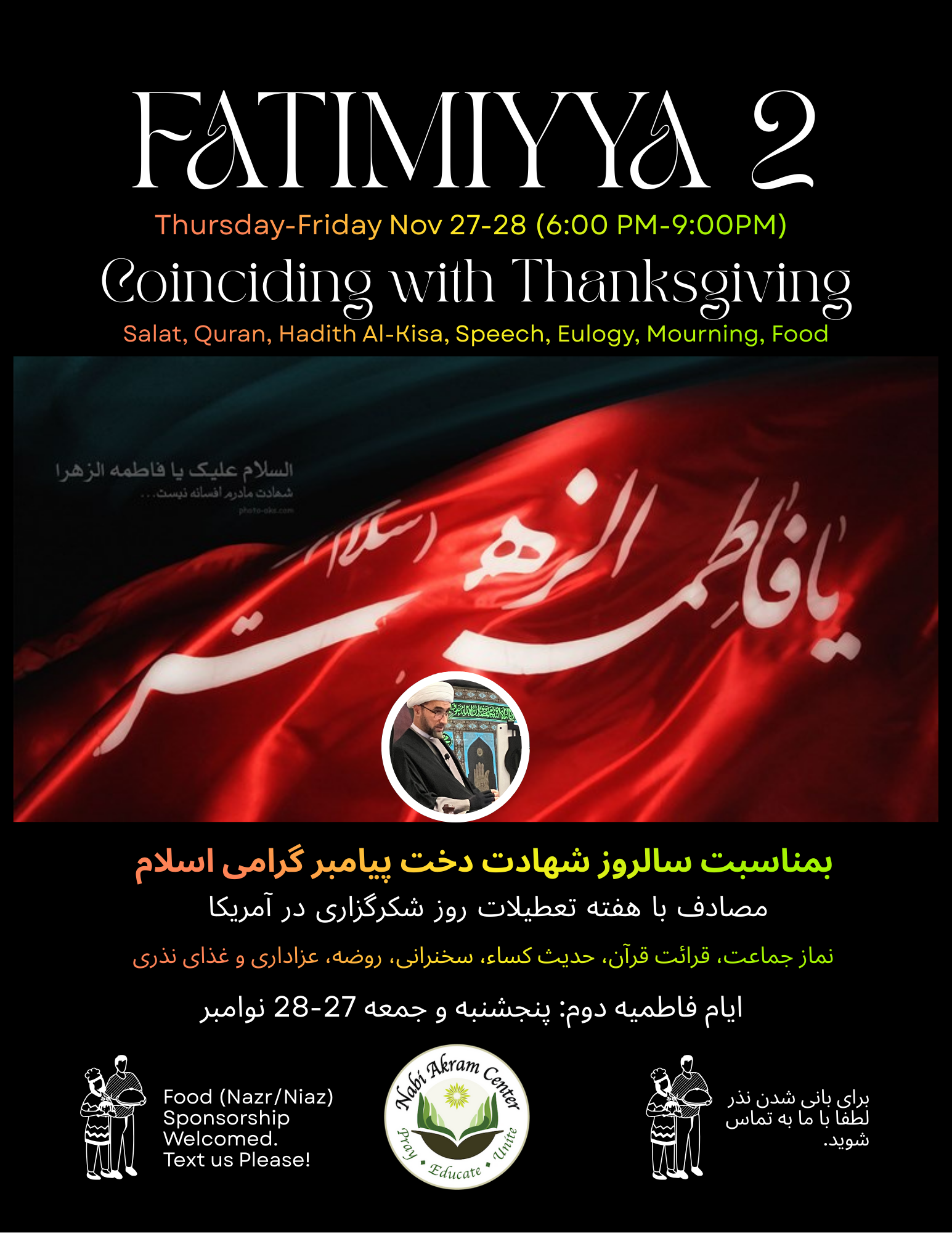
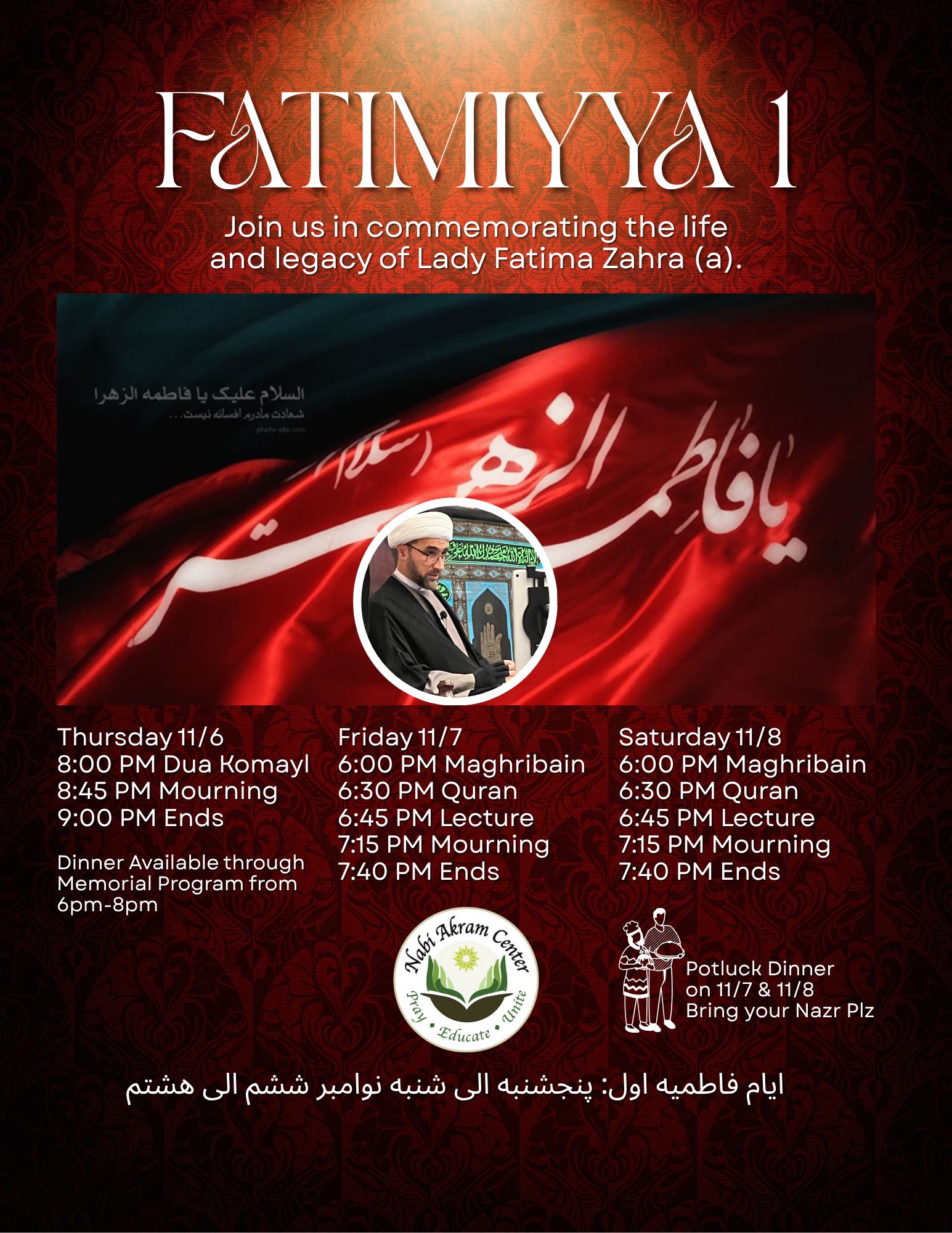
8 Rabi al-Thani (Oct. 1st): Birth of Imam Hasan al-Askari (p), 232 A.H.
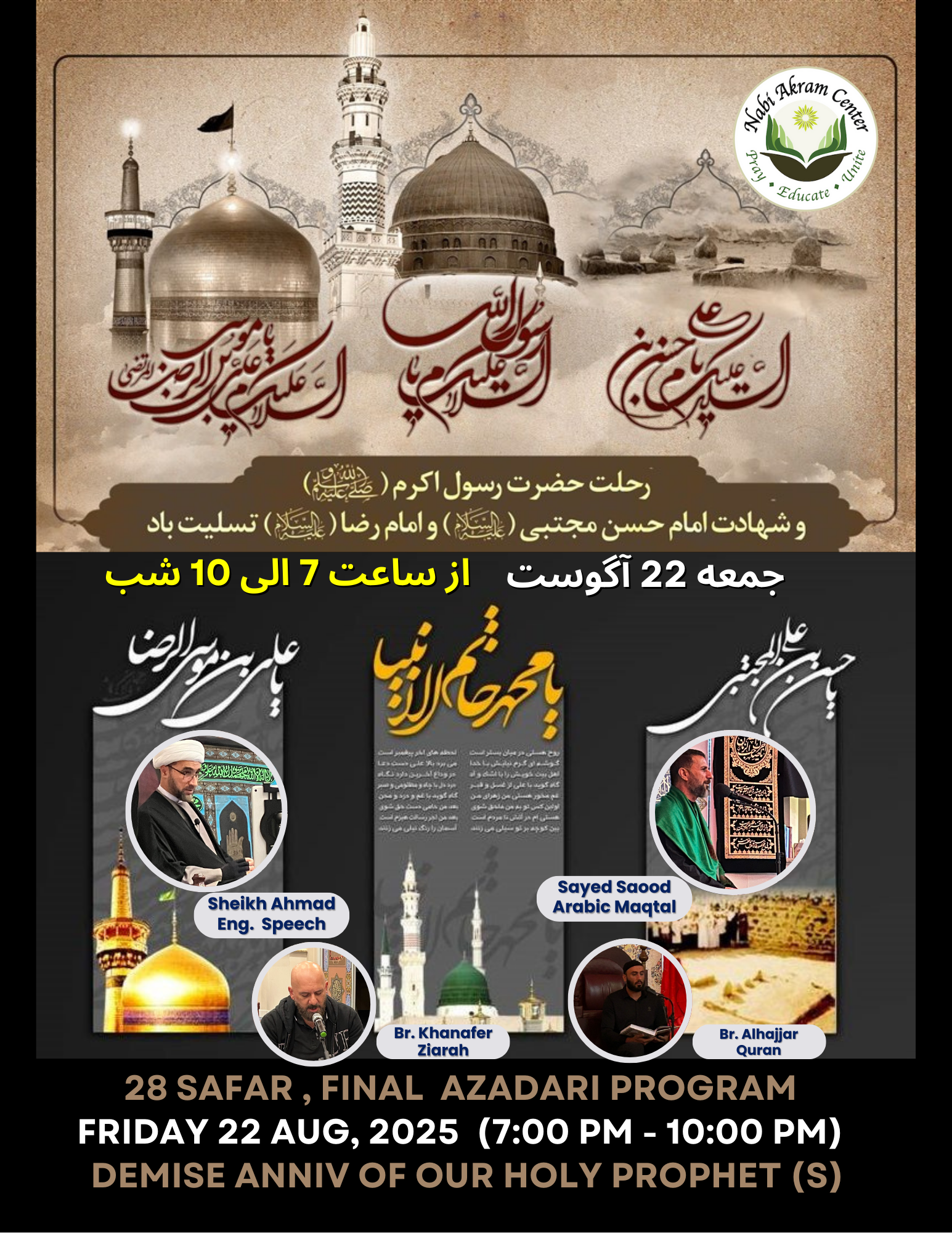
17 Rabi al-Awwal (Sep. 10): Birth Anniversary of Prophet Muhammad (pbuh&hp), 53 B.H.
17 Rabi al-Awwal (Sep. 10): Birth Anniversary of Imam Jafar al-Sadiq (p), 83 A.H.
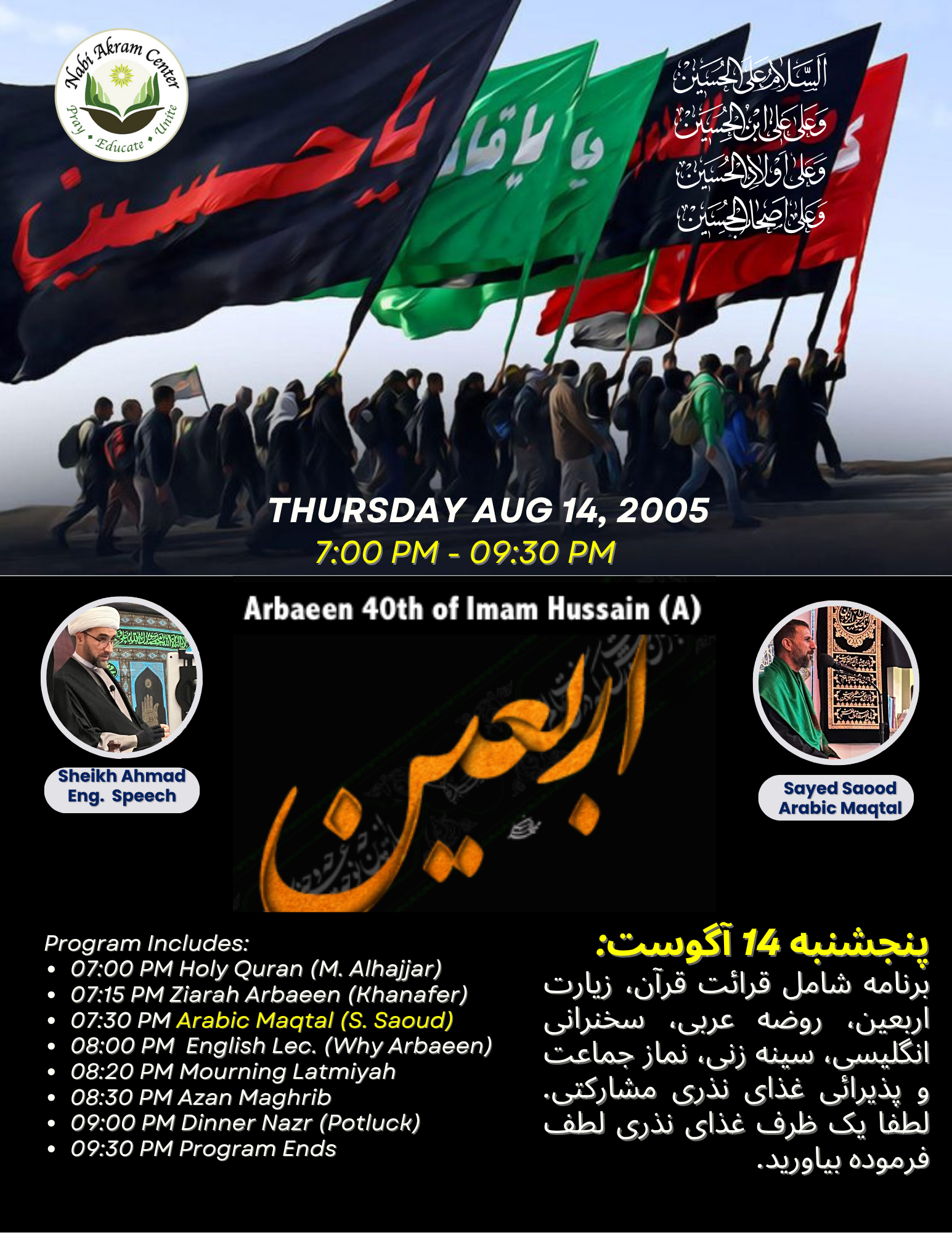
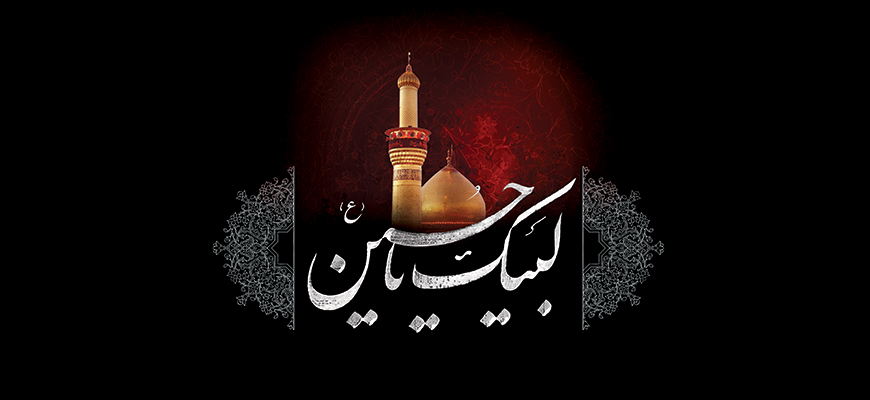
7 Safar Shahadah of Imam Hasan Al-Mojtaba (a)
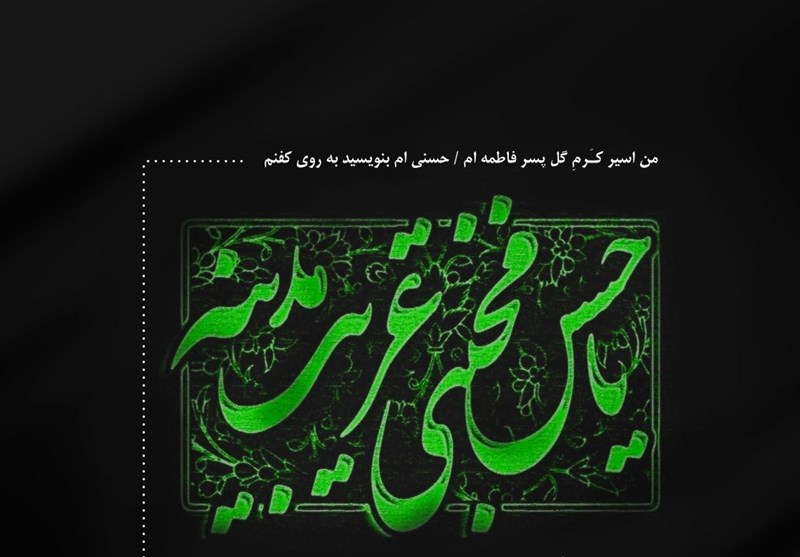
17 Safar Shahadah of Imam Al-Reza (a)
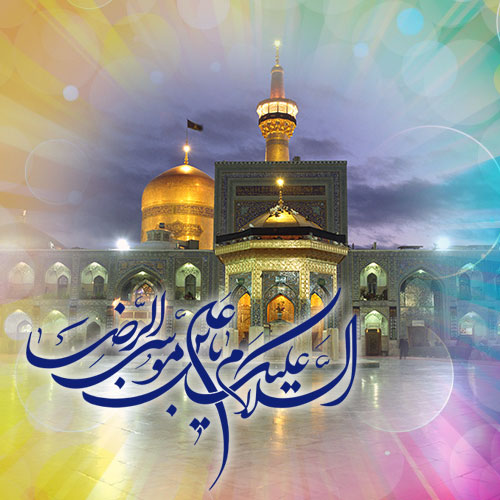
Past Events
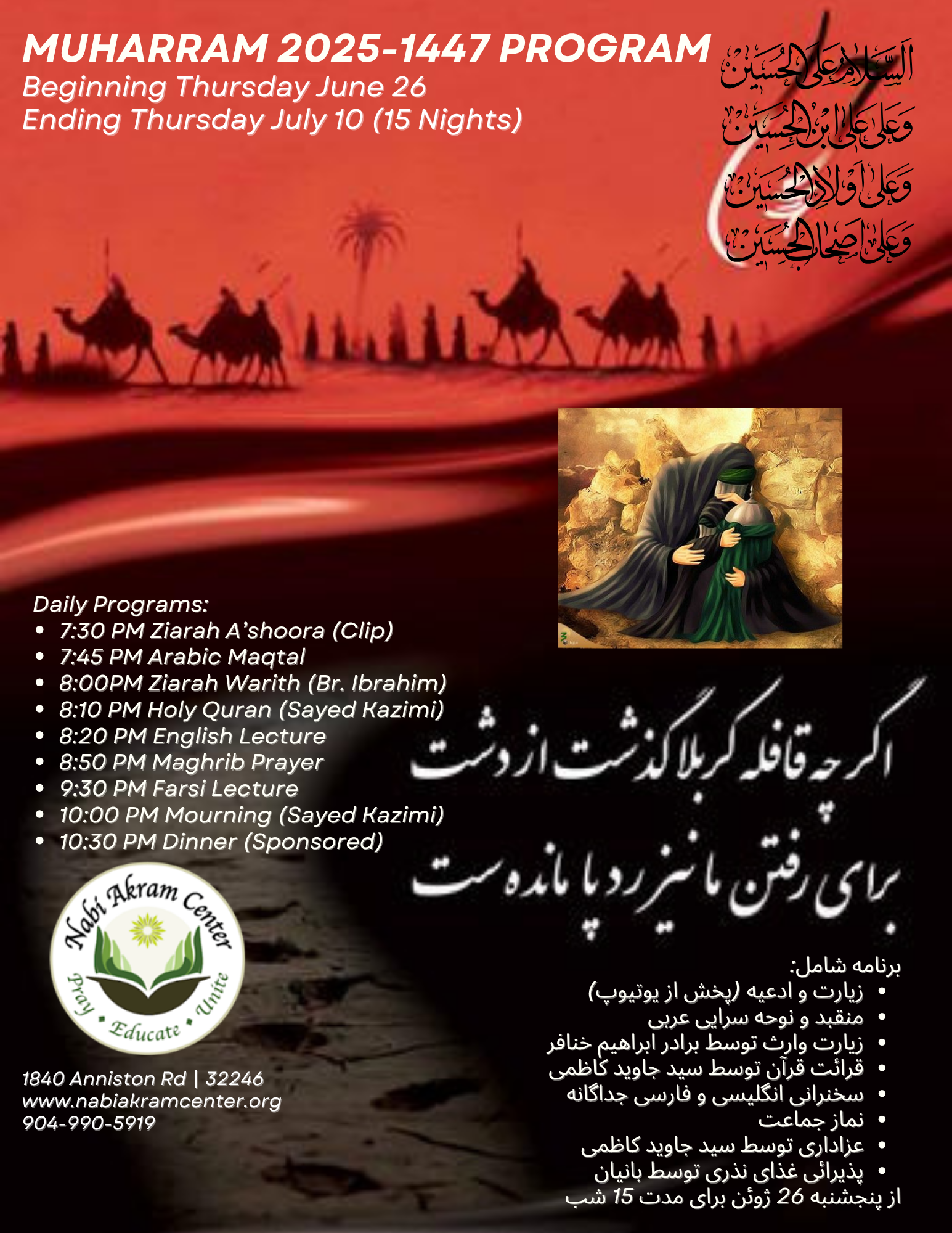

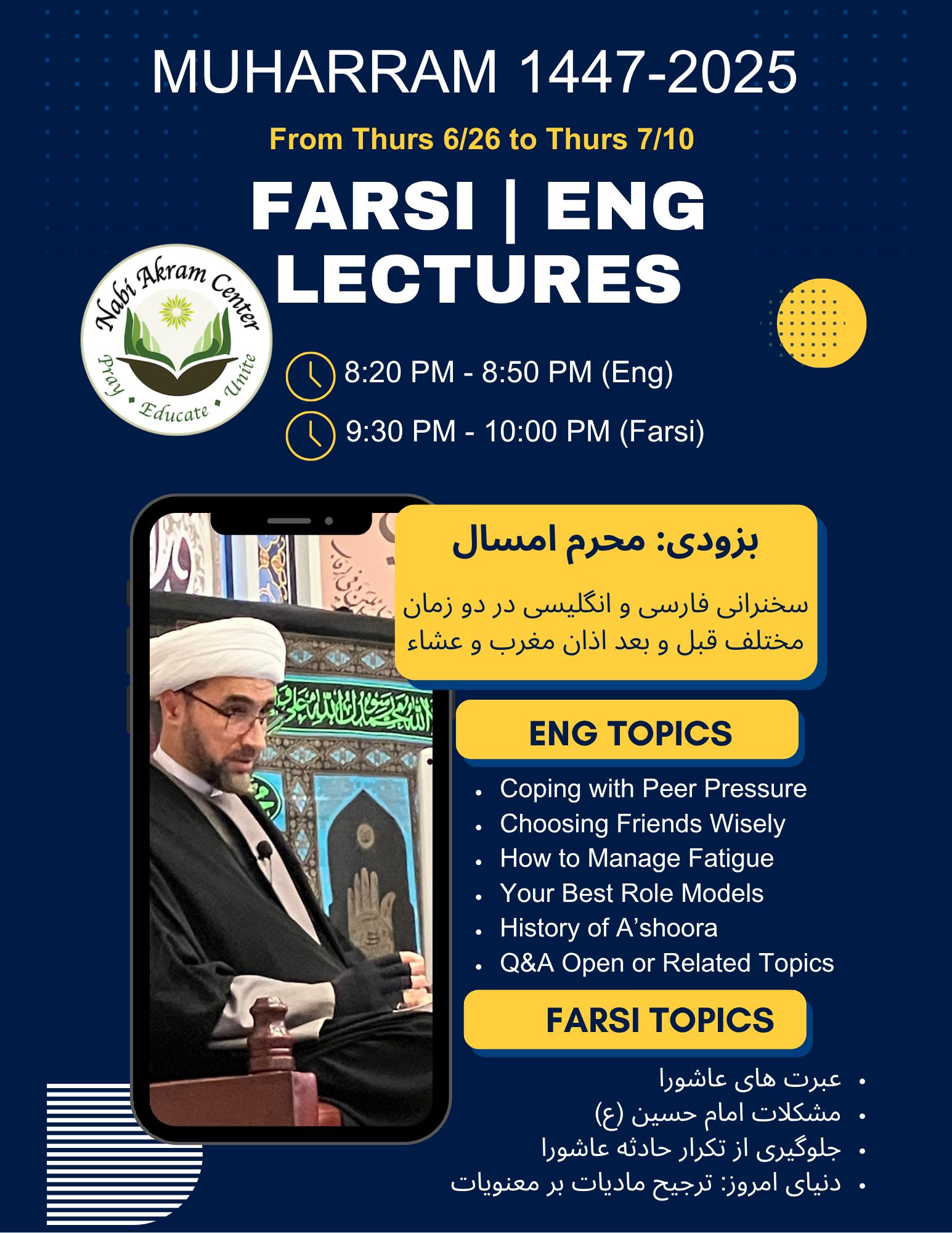
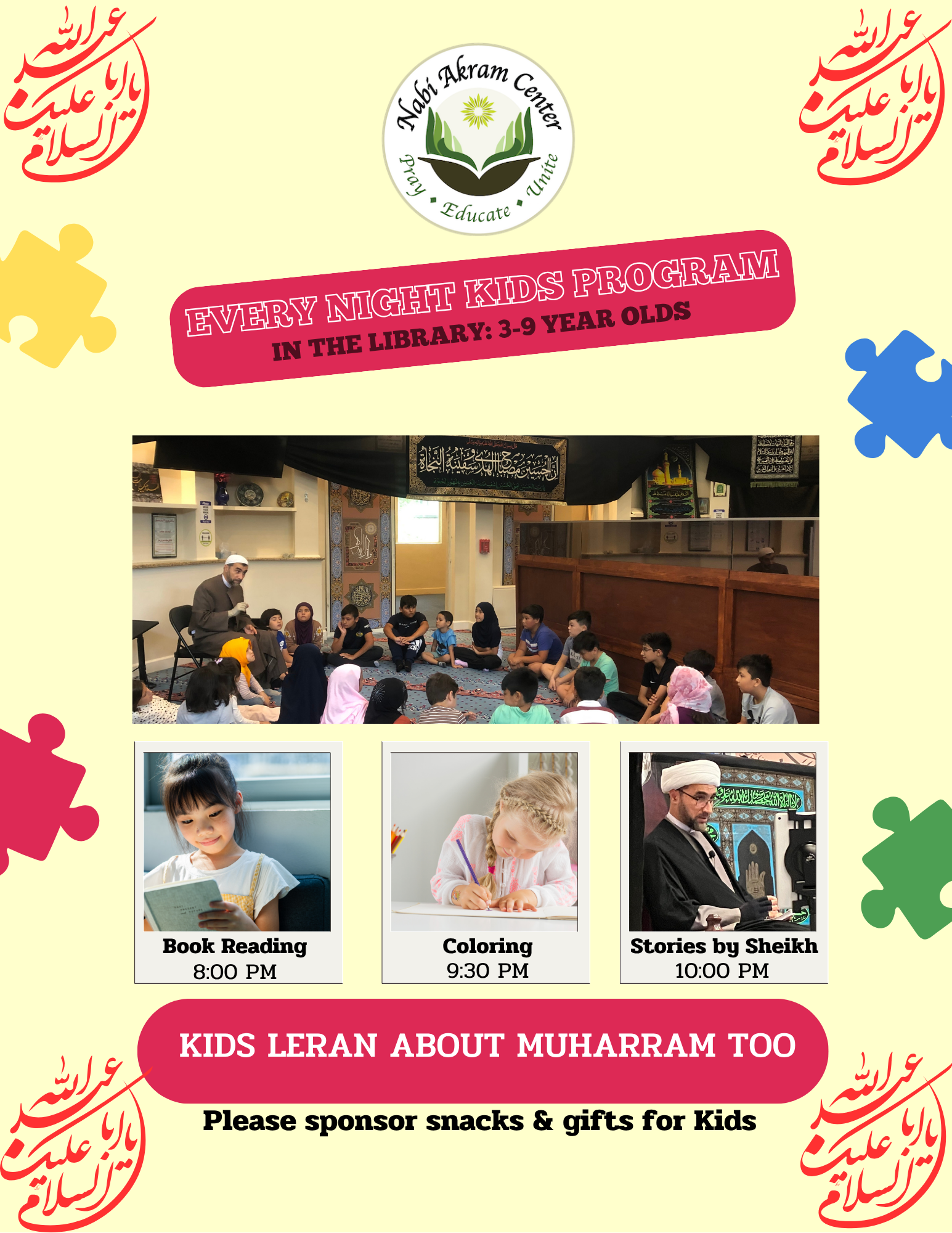
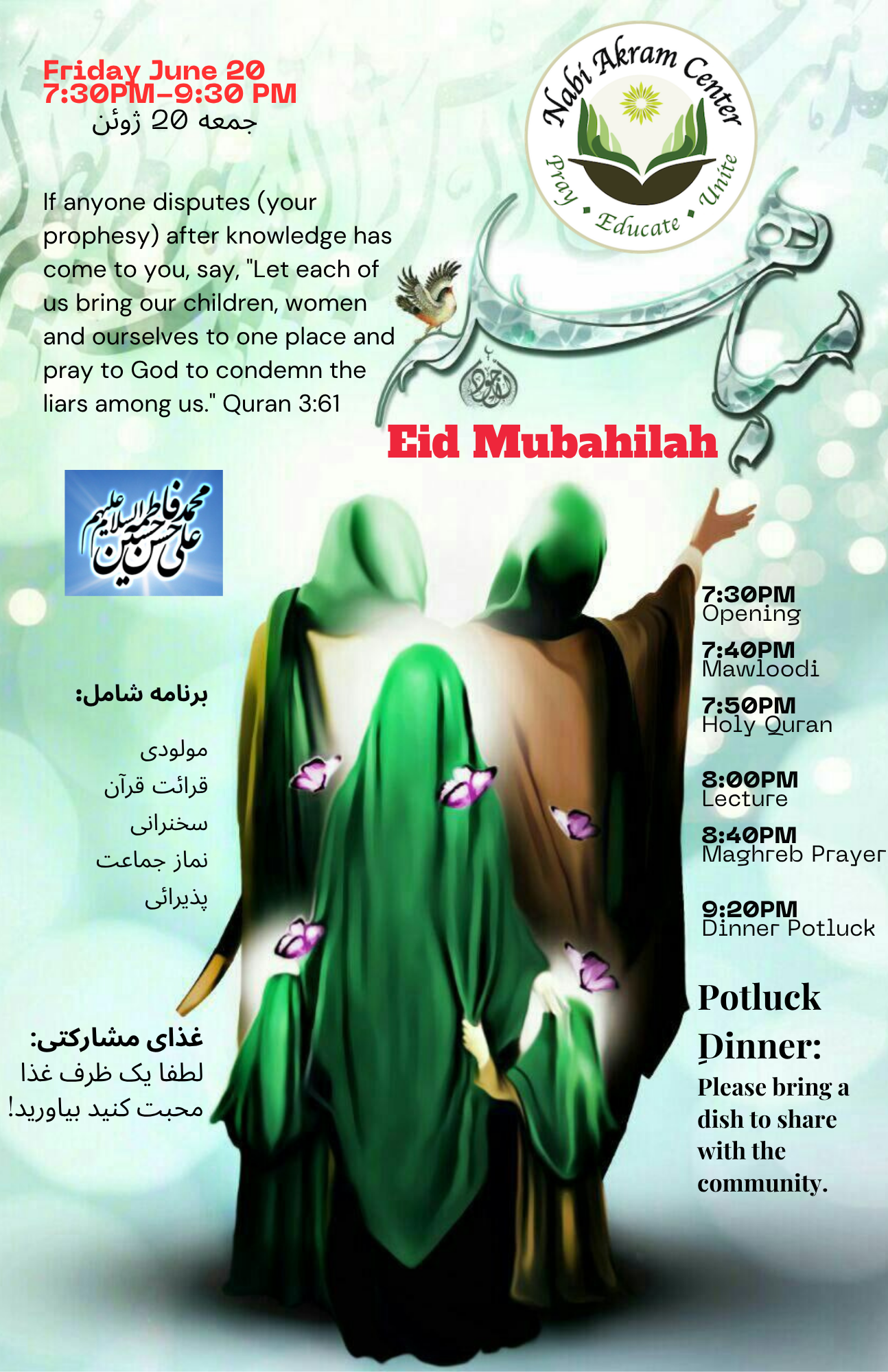
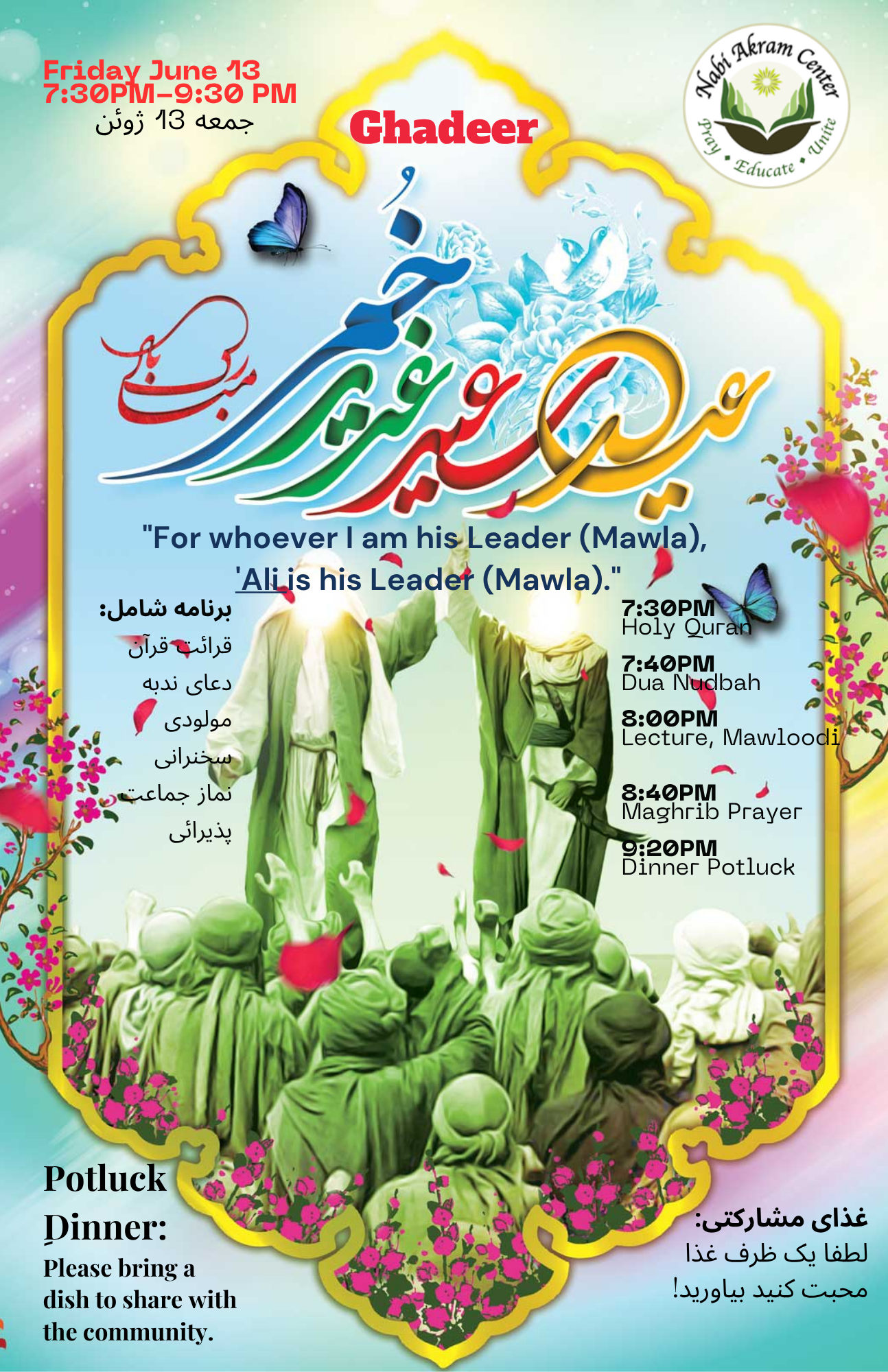
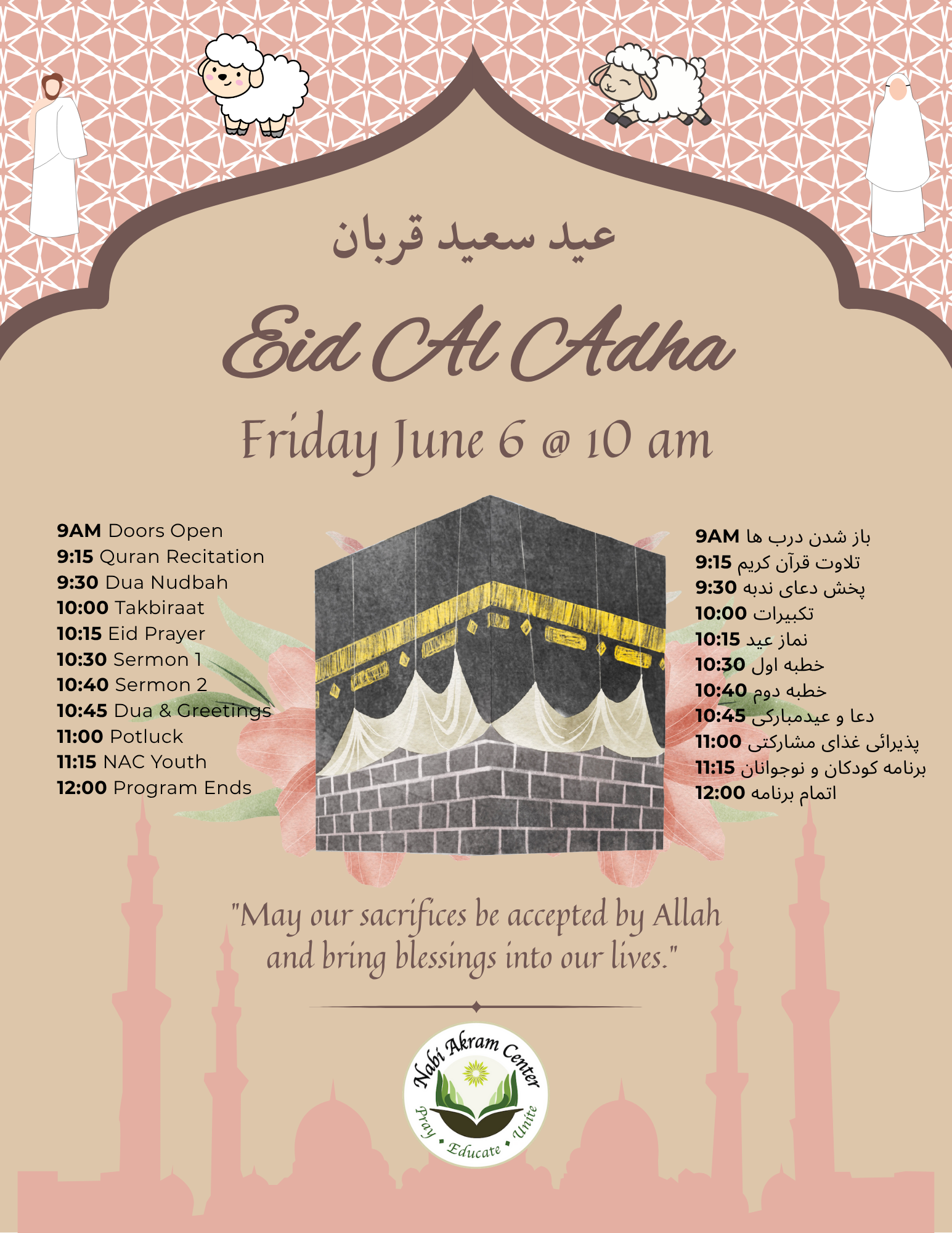

Friday May 9, 2025
Birth Anniversary of Imam Reza (a); 8th Imam of school of Islam.
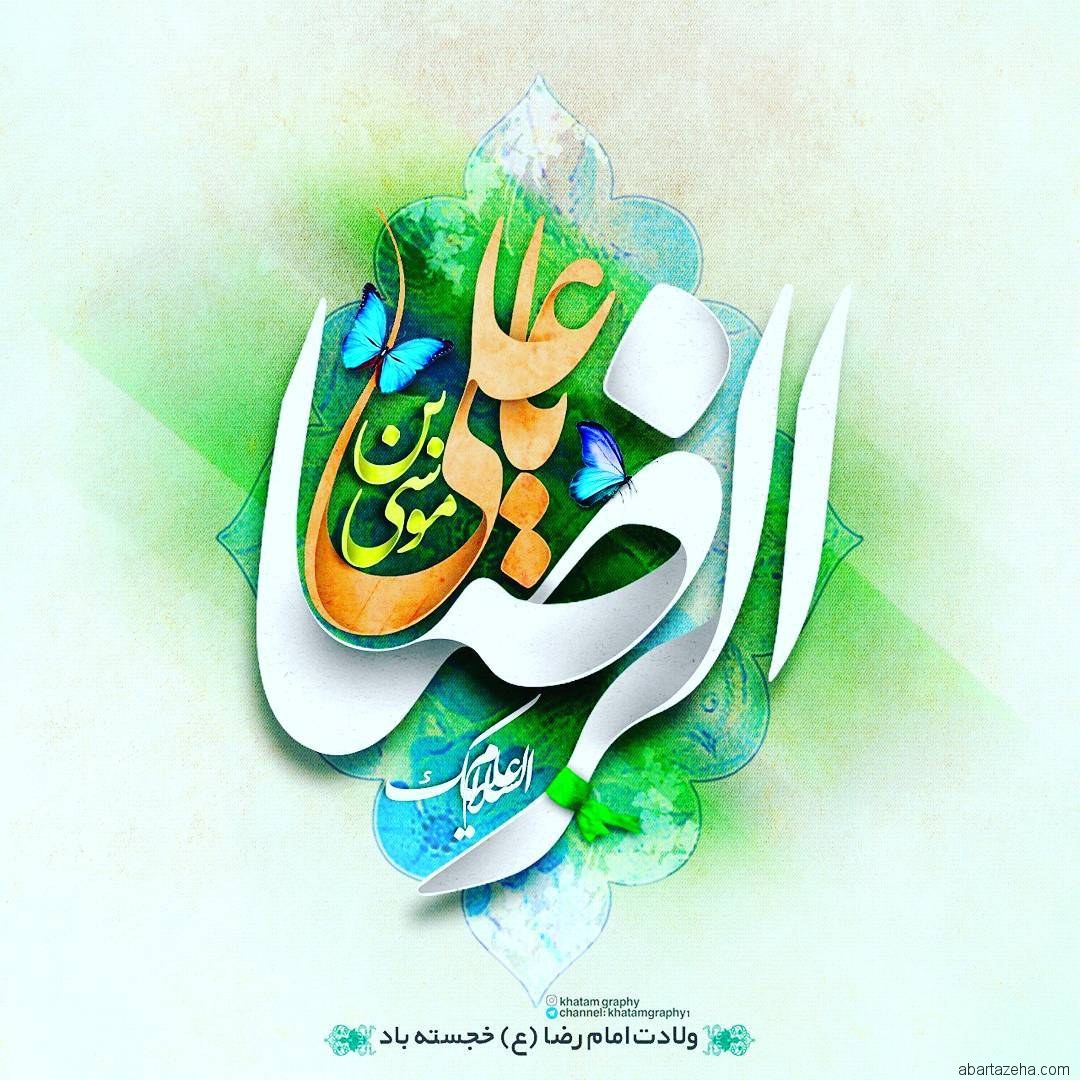
Thursday April 24, 2025
Shahadah Anniversary of Imam Ja’far As-Sadiq (a); 6th Imam of school of Islam.
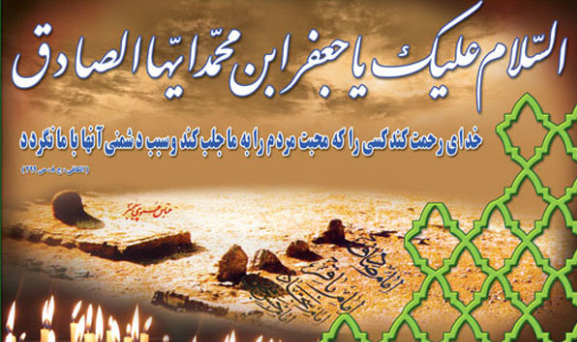
Sunday February 2, 2025
Birth Anniversary of Imam Hussain (a); 3rd Imam of school of Islam.
Mon 2/3 birth anniv of Abal Fadl Al-Abbas (a.s)
Tues 2/4 birth anniv of Imam Zainul Abideen (a.s)
Tuesday, January 28th is the 27 of Rajab
Sunday, January 26th, 2025, is the 25th of Rajab 1446 A.H. which marks the martyrdom anniversary of Imam Musa al-Kadhim (p).
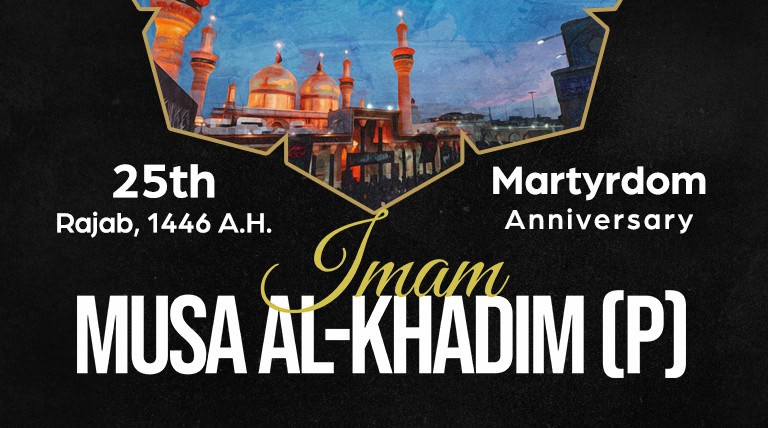
Life in Prostration
In the quiet stillness of the night, when most of the world was fast asleep, Imam Musa al-Kadhim (p) would rise. Known as Abd Salih, the Righteous Servant, his heart was drawn to the worship of God in a way that surpassed all others. His nights were spent in long, sincere prostrations.
One night, the Imam (p) entered the mosque of the Messenger of God (pbuh&hp). As the stars shone in the dark sky, he began a heartfelt sajdah, lowering himself to the ground in humility before his Creator. His words echoed softly in the mosque, ”The evil sin is committed by your servant, so let the grace of forgiveness and pardon flow from You.”1 Over and over, he whispered this supplication. Hours passed, yet he remained in the same position until the first rays of dawn began to illuminate the horizon.2
The depth of his worship earned him admiration even from those who observed him from afar. Yahya Ibn Hasan once remarked, “Musa Ibn Jafar was called Abd Salih because of his resolution in worship.”3 And indeed, his devotion knew no bounds.
Even in the darkness of prison, Imam Musa al-Kadhim (p) continued his life of prayer and remembrance. The sister of Sandi Ibn Shahak, a guard assigned to watch him, was struck by the Imam’s daily routine. Each evening, he would begin his supplications after the evening prayer and continue until midnight. Then, he performed the night prayer, remaining in prayer and remembrance until the call for morning Prayer. After completing his morning worship, he would sit in silent supplication, the name of God on his lips, until the sun rose high in the sky.
She watched as he broke his fast with a simple meal, brushed his teeth, and rested briefly before the next wave of prayers began. At noon, he would rise, perform his ablution, and offer the noon prayer, followed by additional supplications until the afternoon prayer. The Imam’s every moment was filled with connection to God, and her heart ached as she said, “The people who mistreat such a pious servant of God will be losers.”4
Others too bore witness to his extraordinary worship. Fadl Ibn Rabi’ once invited someone to look at the Imam (p) through a window. At first glance, it seemed like a garment was lying on the ground. But as they looked closer, they realized it was the Imam (p), deep in prostration. Fazl shared, “I watch him day and night and find him only in this state.”5
His supplications were simple but profound, each word infused with the weight of a heart wholly surrendered to God. He would say, “O God! I ask You to give me spare time for Your worship, and if You do it, I will praise You,” he was heard saying during his long sajdahs. The tears that flowed from his eyes often soaked his beard, a testament to his awe of Allah’s greatness.
Imam Musa al-Kadhim (p) once revealed a glimpse into his own practices, saying, “I say ‘astaghfirullah’ (I seek God’s forgiveness) five thousand times a day.”6 For him, worship was not a burden but a source of solace, a way to draw nearer to the One he adored.
Imam Musa al-Kadhim (a.s.) taught the world the true meaning of submission, humility, and reliance on God. His worship was not just an act; it was a way of life, a beacon for those seeking closeness to their Creator.
1. Shaykh al-Tabrasi, Ilam al-Wara Bi-A’lam al-Huda, vol. 2, pg. 25.
2. The divinely appointed imams(pbut) are infallible; therefore, such expressions can be seen as a manifestation of humility before God.
3. Al-Dhahabi, Tarikh al-Islam, vol. 12, pg. 418.
4. Ibn Al-Athir, Al-Kamil Fi al-Tarikh, vol. 6, pg. 164.
5. Shaykh al-Sadouq, Oyoon Akhbar al-Ridha (p), vol. 2, pg. 98.
6. Al-Husayn ibn Sa’id, Al-Kufi,Kitab al-Zuhd, pg. 74.
Next upcoming event – Mab’ath
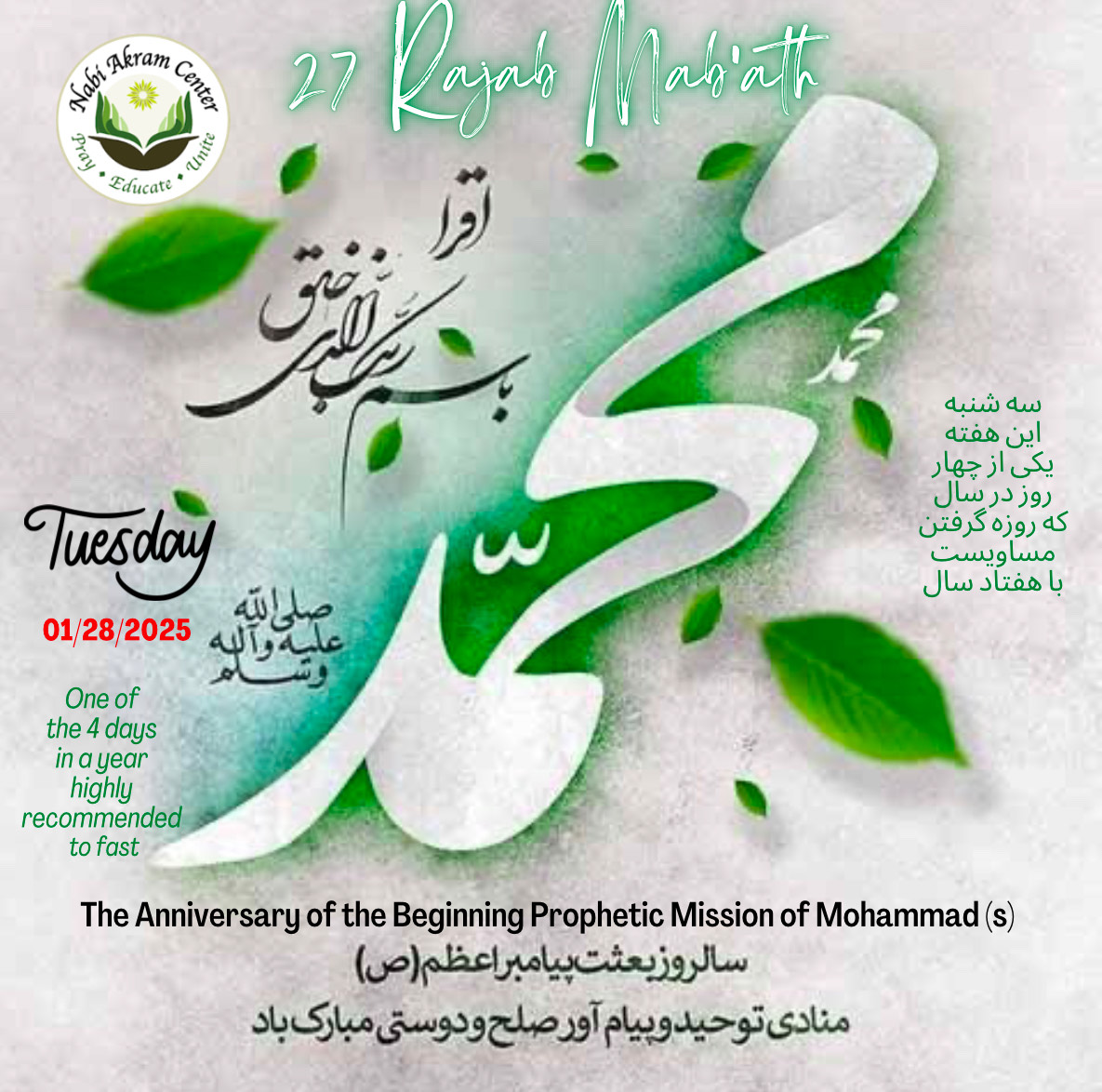
Expected first Day of Ramdhan Saturday March 1, 2025
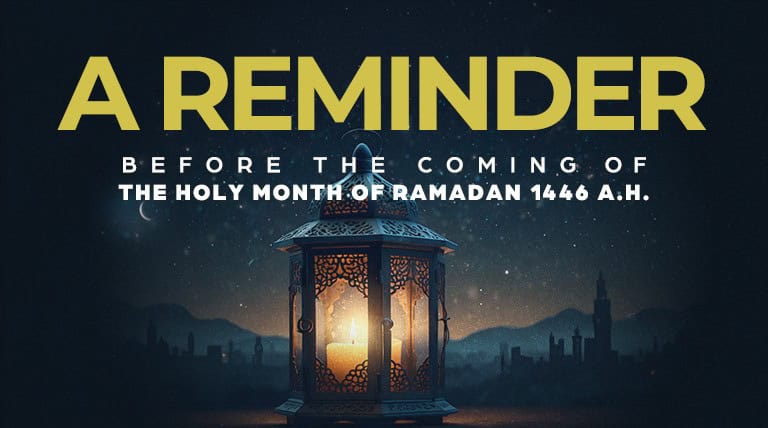
In the Name of God, the Beneficent, the Merciful
A reminder on some of the rulings regarding Qada (make-up) fasts and offering Fidyah and Kaffarah (expiation for missing fasts)
It is well known that a person who misses a fast from the month of Ramadan is required to make it up. In addition, sometimes such cases require offering a fidyah and/or a kaffarah as well. Therefore, we draw the attention of the believers to some of the most important rules regarding qada, fidyah, and kaffarah as we approach the holy month of Ramadan. We ask Almighty God to grant us success in our obedience and sincere worship to Him.
- It is obligatory to make up fasts of the month of Ramadan that were missed due to an illness, travel, or similar circumstances (with certain exceptions), or intentionally.
- Based on recommended precaution, one should make up their missed fast before the next month of Ramadan.
- If one has missed fasting the entire or part of the month of Ramadan due to a legitimate excuse/reason but does not make up the missed fast(s) before the next month of Ramadan (i.e. over the course of the following year) due to negligence, or had the intention to make it up but due to unexpected excuse (e.g., illness) couldn’t make it, they must make up the fast and offer kaffarah for delaying the qada fast, and it is in the same amount as fidyah.
- If one has missed fasting the entire or part of the month of Ramadan without a legitimate excuse/reason, and does not make up the missed fast(s) before the next month of Ramadan, he/she must make up the missed fast, and based on obligatory precaution offer kaffarah for delaying the qada fast. In addition, the kaffarah for intentionally breaking the fast without a legitimate excuse/reason must be offered (see below).
- A person who is unable to fast due to chronic disease is not required to perform qada but must offer fidyah.
- A person who finds it excessively difficult to fast on account of old age must offer fidyah and is not required to perform qada, however, if they [absolutely] cannot fast, no fidyah or qada are required.
- A pregnant woman in her last two months [of pregnancy] who is unable to fast due to [resulting] harm on her or the fetus must offer fidyah and make up the fast(s). The same rule applies to a nursing mother if there is fear of the breast milk stopping [as a result of fasting] and this breastfeeding is the only way to feed the newborn. However, in the case of a nursing mother who is capable of feeding her child by other means, such as using baby formula, she may not break her fast based on obligatory precaution.
- Fidyah is compensation offered for not being able to fast. It is to feed one poor person for each day [missed]. For example, one who is not able to fast the entire month must offer thirty (or twenty-nine depending on how many days were in the month in that year) meals to the poor.
- Kaffarah is an expiation for deliberately breaking one’s fast without a valid excuse/reason during the month of Ramadan. In addition, a kaffarah must also be offered for delaying a qada fast until the next month of Ramadan, as mentioned previously.
- The kaffarah for intentionally breaking one’s fast during the month of Ramadan is either to fast for sixty days or feed sixty poor persons for each day missed. This is in addition to being obligated to perform the qada fast(s).
- It is permissible to offer the entire fidyah to a single poor person, but the kaffarah for deliberately breaking one’s fast without a valid excuse/reason during the month of Ramadan must be to feed sixty distinct [poor] persons.
- When it comes to the fidyah and the kaffarah, nothing but “feeding” suffices. The amount of food “fed” must be the average of what we usually feed ourselves and our families. According to Islamic law, a single “feeding” must be the equivalent of at least 1.65 lbs. (750 grams) of wheat, rice, or dates.
- It is permissible to pay money with the condition of delegating to the appropriate entity, trustworthy person, or the poor person themselves, as long as one feels assured that the food will be bought and offered. It is not permissible to purchase anything other than food with the money.
Sunday January 26, 2025
Martyrdom Anniversary of Imam Musa Al-Kazim (a); 7th Imam of school of Islam.

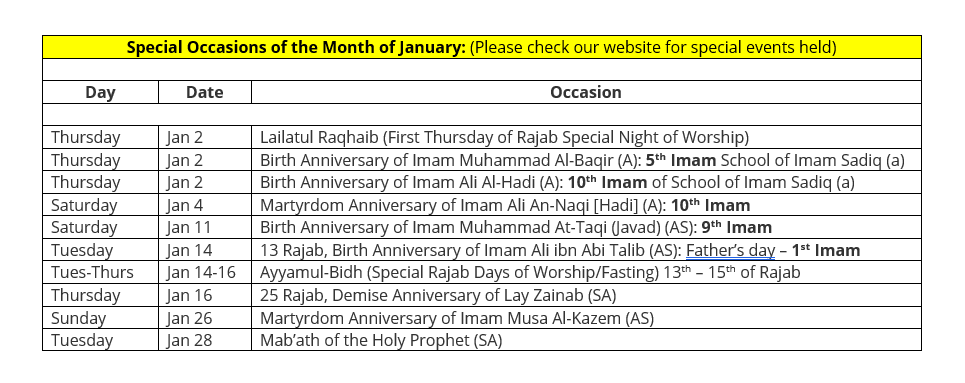
Nabi Akram Center- All Rights Reserved

